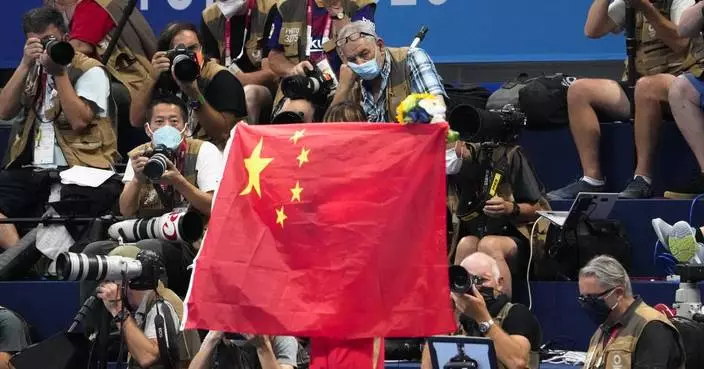Tokyo Olympic President Yoshiro Mori said Monday he expects to talk with IOC President Thomas Bach this week about potential dates and other details for the rescheduled games next year.
The International Olympic Committee and Japanese organizers last week postponed the Olympics until 2021 because of the coronavirus pandemic.
“I anticipate speaking to President Bach this week,” Mori said, speaking at the opening of an organizing committee executive board meeting. “He tends to call me directly, and that puts me in trouble because I don't have good command of English.”
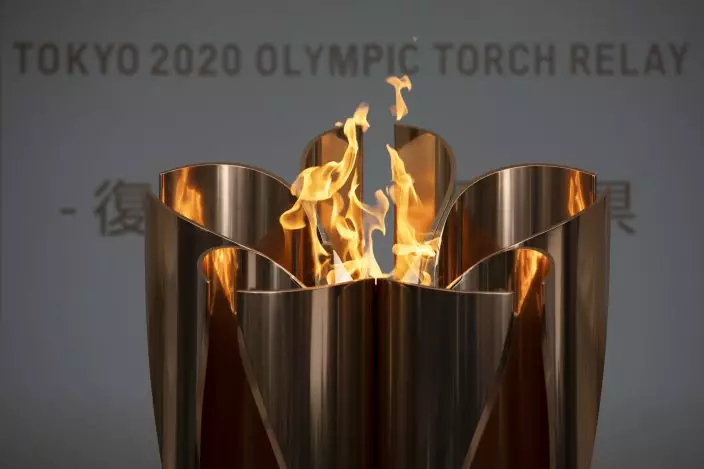
FILE - In this March 24, 2020, file photo, the Olympic Flame burns during a ceremony in Fukushima City, northern Japan. Tokyo Olympic organizers seem to be leaning away from starting the rescheduled games in the spring of 2021. More and more the signs point toward the summer of 2021. Organizing committee President Yoshiro Mori suggested there would be no major change from 2020. (AP PhotoJae C. Hong)
Mori has repeatedly said the Olympics will be held no later than next summer and many reports suggest it will be in the same July-August slot.
This year's games were to have opened on July 24 and closed on August 9. The corresponding weeks next year would mean a July 23 opening ceremony.
“Opinions on both sides have been compiled, whether spring or summer," Mori said. “There are opinions for both options and they both have advantages and disadvantages that are being compared and then will be decided.”
After holding out for weeks, local organizers and the IOC last week postponed under pressure from athletes, national Olympic bodies, and sports federations.
The decision on a date is expected to come quickly. The athletes are demanding it, and any reorganization revolves around a firm time slot.
Both Mori and CEO Toshiro Muto have said the the cost of rescheduling will be “massive” — local reports suggest several billion dollars — with most of the expenses borne by Japanese taxpayers.
More AP sports: https://apnews.com/apf-sports and https://twitter.com/AP_Sports
GENEVA (AP) — The World Anti-Doping Agency said after reviewing various media reports that it stands by its decision to clear 23 Chinese swimmers who tested positive for a banned heart medication before the 2021 Tokyo Olympics.
WADA addressed questions at a news conference on Monday and acknowledged there would be skepticism about details of the case after the release on Sunday of a documentary by German broadcaster ARD.
In an earlier statement following initial newspaper reports led by the New York Times, WADA said it agreed with Chinese authorities and ruled the swimmers’ samples were contaminated.
The contamination was accepted to have come from spice containers in the kitchen of a hotel where some of the Chinese team stayed for a national meet in January 2021
Chinese authorities handling the case after testing the swimmers in January 2021 cleared them without any penalties and WADA accepted their conclusions. Sending independent investigators to China that year was not feasible during the COVID-19 pandemic.
“We had no credible way to disprove the contamination theory," WADA prosecutor Ross Wenzel told reporters in an online call on Monday, adding there was no political pressure to drop the case.
Wenzel detailed a timeline from January to June 2021 for the case to be resolved. That was just weeks before the Tokyo Olympics opened, and with the Beijing Winter Games approaching in February 2022 that was a personal project for Chinese President Xi Jinping.
Chinese swimmers went on to win three gold medals in Tokyo, where the United States took silver in two of those races and Britain was second in the other.
“Following WADA’s review of the documentary, the agency still stands firmly by the results of its scientific investigation and legal decision concerning the case,” WADA said in the statement before putting forward its senior managers up for questioning on Monday
WADA said based on available scientific evidence and intelligence, “which was gathered, assessed and tested by experts in the pharmacology of trimetazidine (TMZ); and, by anti-doping experts,” it had no basis under the global anti-doping code to challenge the Chinese agency's findings of environmental contamination.
The drug at the center of this case was also the medication that led to the suspension of Russian figure skater Kamila Valieva at the Winter Olympics in Beijing in 2022.
In that case, WADA moved to appeal and sought sanctions for Valieva after Russian anti-doping authorities judged she was not to blame.
China's star swimmer Sun Yang also tested positive for TMZ and served a three-month ban in 2014. That case also was kept quiet by Chinese and swim authorities and provoked criticism from opponents when he won at the world championships the next year. Sun was later banned for breaking doping rules in a high-profile case WADA did pursue.
Dismissing weekend suggestions WADA was “soft on Chinese athletes,” agency president Witold Bańka reminded reporters it had been “vigorously pursuing justice” in the Sun case. A ban of more than four years for three-time Olympic champion Sun expires next month.
WADA said its position in the latest Chinese case was also accepted by World Aquatics, which governs international swimming.
Chinese Foreign Ministry spokesperson Wang Wenbin on Monday described the media reports as “disinformation and a misrepresentation,” and affirmed WADA’s decision.
Wang said China’s anti-doping authorities investigated the incident and found the positive results were due to “the ingestion of contaminated food by the relevant athletes without knowledge of the contaminated food, and the Chinese swimmers involved were not at fault or negligent, which did not constitute a doping violation."
However, anti-doping rules in Olympic sports do require a provisional suspension — which the Chinese swimmers avoided from their national anti-doping agency — when athletes test positive for TMZ, except if contamination is suspected.
“I want to emphasize,” Wang said, “that the Chinese government has maintained a firm stance of zero tolerance towards doping, strictly abides by the WADA code, resolutely safeguards the physical and mental health of athletes, maintains fair play in sports competitions, and contributes positively to the global efforts in the crackdown on doping.”
China has given almost $2 million to WADA in recent years above its expected payments as a national government.
The 30-member Chinese swim team won six medals in Tokyo, including three golds. Zhang Yufei won the women's 200 meters butterfly ahead of Regan Smith of the United States, and silver in the 100 butterfly where American Torri Huske was out of the medals in fourth.
Zhang and Yang Junxuan were part of the 4x200 freestyle relay team that took gold, edging the Americans including seven-time Olympic champion Katie Ledecky. Canada was fourth.
“Doping can deprive clean athletes of hard-earned moments they deserve such as standing on the podium and the life-changing opportunities that may follow,” Swimming Canada said Sunday in a statement.
In the men's 200 medley in Tokyo, Wang Shun beat silver medalist Duncan Scott, the British star who refused to share a medal podium with Sun Yang at the 2019 world championships.
Many of the athletes still compete for China and are expected to swim at the Paris Olympics that start in July.
WADA said it was given a tip by the U.S. Anti-Doping Agency as early as 2020 — before this case arose — about allegations of doping cover-ups in China but the USADA never followed up with evidence.
USADA CEO Travis Tygart called the news of the Chinese positive tests “crushing.”
“It’s even more devastating to learn the World Anti-Doping Agency and the Chinese Anti-Doping Agency secretly, until now, swept these positives under the carpet by failing to fairly and evenly follow the global rules that apply to everyone else in the world,” Tygart said.
The case underscores what many view as a flaw in the global anti-doping system — that a country's own anti-doping organization is often the first line of defense in catching drug cheats and those organizations have different levels of motivation to fulfil that role.
AP sports: https://apnews.com/sports
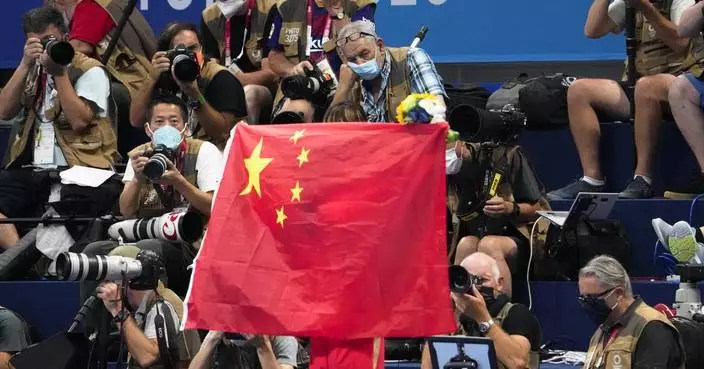
WADA stands by decision to clear Chinese swimmers for Tokyo Olympics citing contaminated samples
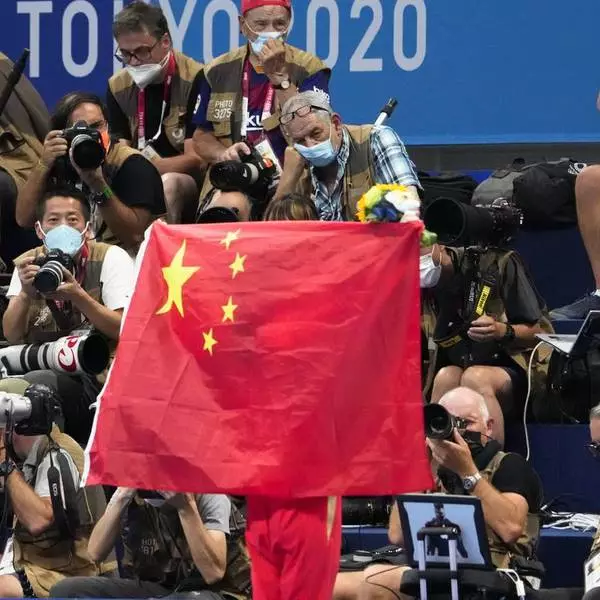
WADA stands by decision to clear Chinese swimmers for Tokyo Olympics citing contaminated samples
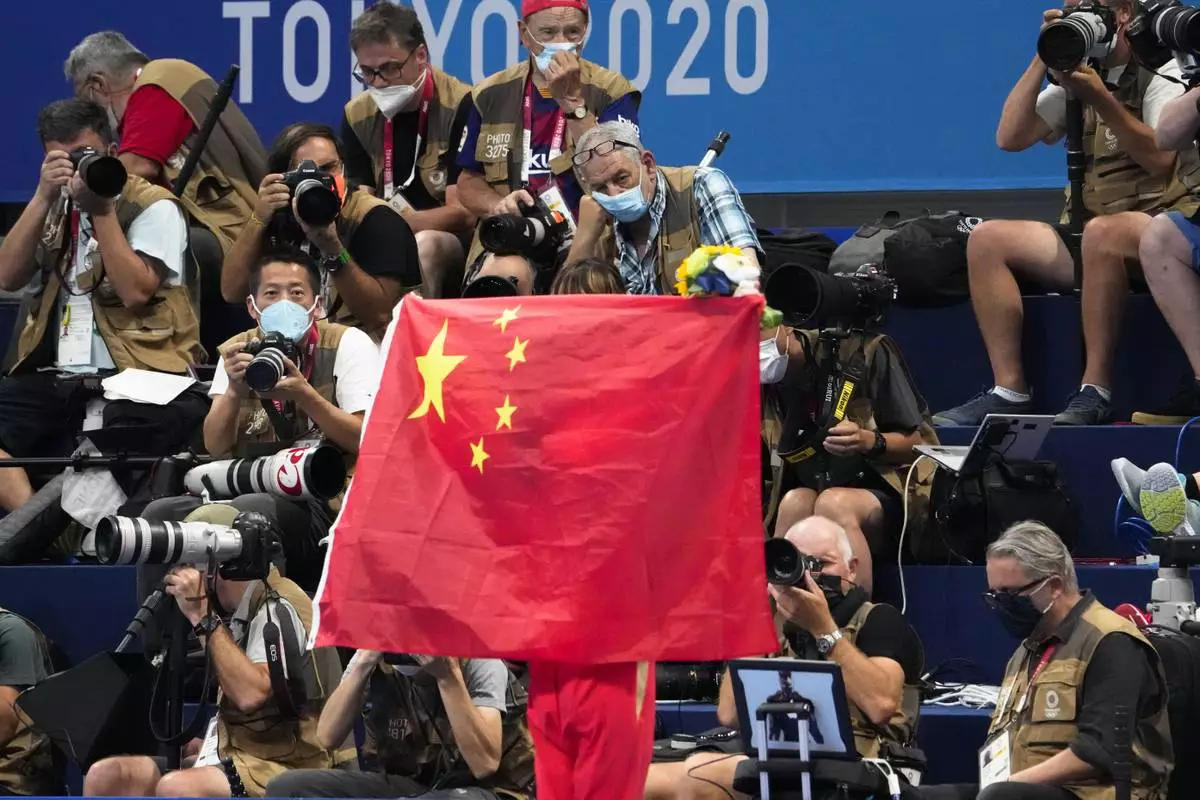
FILE - A Chinese flag is unfurled on the podium of a swimming event final at the 2020 Summer Olympics, on July 29, 2021, in Tokyo, Japan. An Australian newspaper said Saturday, April 20, 2024, 23 Chinese swimmers were cleared to compete at the Tokyo Olympics despite testing positive to doping because world governing bodies agreed with Chinese authorities and ruled that the tests had been contaminated.(AP Photo/Charlie Riedel, File)







